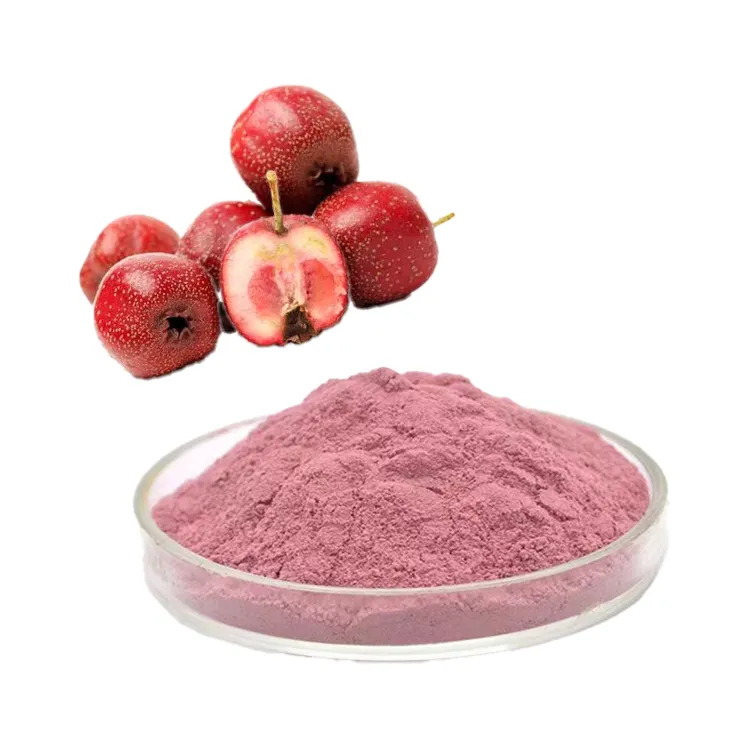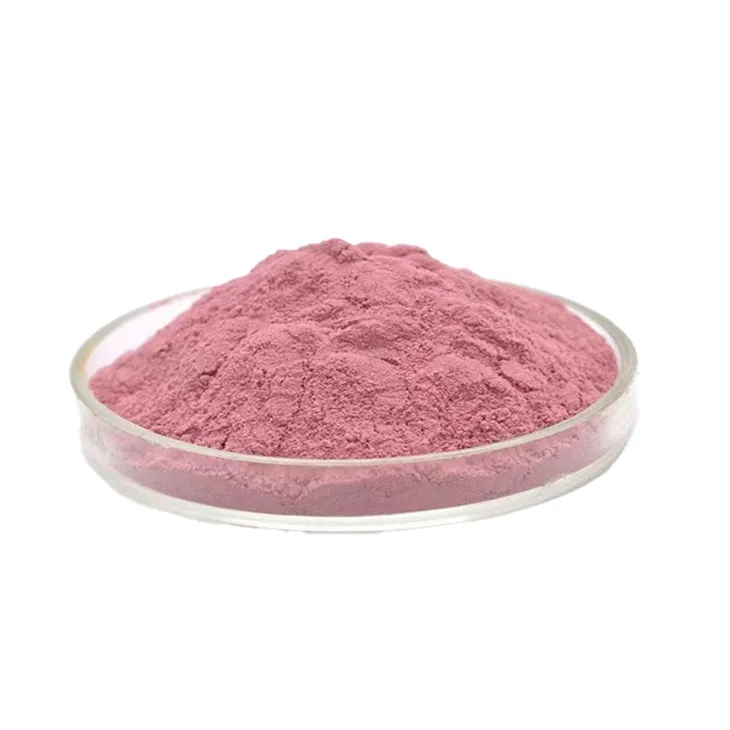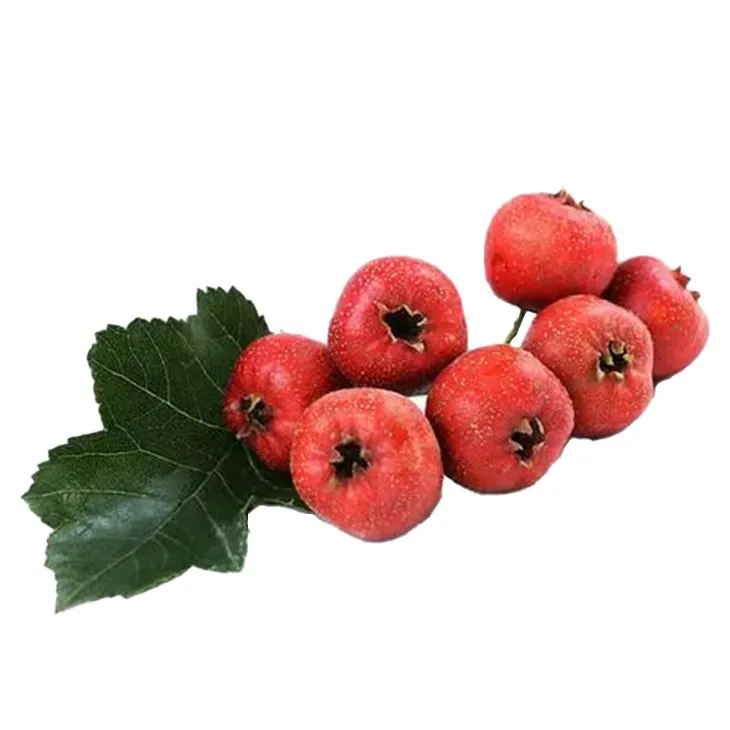- 0086-571-85302990
- sales@greenskybio.com
Can hawthorn powder reduce cholesterol?
2024-11-11

1. Introduction
Cholesterol management is a crucial aspect of maintaining good health. High levels of cholesterol in the blood can lead to various health problems, such as heart disease and stroke. In recent years, there has been growing interest in natural remedies for cholesterol reduction, and Hawthorn powder has emerged as a potential candidate. This article will explore whether Hawthorn powder can indeed reduce cholesterol by analyzing its active ingredients, relevant medical experiments, and dietary considerations.

2. Active Ingredients in Hawthorn powder
Hawthorn powder is derived from the hawthorn fruit, which contains several bioactive compounds that may contribute to its potential cholesterol - lowering effects.
2.1 Flavonoids
Flavonoids are a large group of polyphenolic compounds found in hawthorn. Quercetin and rutin are two common flavonoids present. These flavonoids have antioxidant properties. Antioxidants help to prevent oxidative stress in the body, which is associated with the development of atherosclerosis, a condition where plaque builds up in the arteries. By reducing oxidative stress, flavonoids may play a role in maintaining healthy cholesterol levels. For example, some studies have suggested that Quercetin can inhibit the oxidation of low - density lipoprotein (LDL) cholesterol. LDL cholesterol is often referred to as "bad" cholesterol, and its oxidation is a key step in the development of atherosclerotic plaques.
2.2 Proanthocyanidins
Proanthocyanidins are another important class of compounds in hawthorn powder. They are polymers of flavan - 3 - ol units. Proanthocyanidins have been shown to have anti - inflammatory properties. Inflammation in the arteries can also contribute to the development of atherosclerosis. By reducing inflammation, proanthocyanidins may help to keep the arteries healthy and potentially influence cholesterol levels. In addition, some research has indicated that proanthocyanidins can interact with the gut microbiota. The gut microbiota plays a role in cholesterol metabolism, and this interaction may be another mechanism through which hawthorn powder could affect cholesterol levels.

3. Medical Experiments on Hawthorn Powder and Cholesterol
Several medical experiments have been conducted to investigate the relationship between hawthorn powder and cholesterol levels.
3.1 Animal Studies
In animal studies, hawthorn extract (which is similar in composition to hawthorn powder) has shown promising results. For instance, in a study using rats fed a high - cholesterol diet, supplementation with hawthorn extract led to a significant decrease in total cholesterol levels. The rats also showed a reduction in triglyceride levels, another important lipid parameter. These effects were accompanied by an improvement in the antioxidant status of the rats' livers. This suggests that the antioxidant compounds in hawthorn may be involved in lipid - lowering mechanisms. However, it is important to note that animal studies have limitations. The physiological and metabolic processes in animals may not be exactly the same as in humans, so the results cannot be directly extrapolated to humans.
3.2 Human Studies
There have also been some human studies on the effects of hawthorn on cholesterol. In a small - scale clinical trial, participants who consumed hawthorn powder daily for a certain period showed a tendency towards a decrease in LDL cholesterol levels. However, the changes were not always statistically significant across all participants. Another study looked at the combined effect of hawthorn powder and lifestyle modifications (such as diet and exercise) on cholesterol. The results indicated that those who adhered to both hawthorn supplementation and lifestyle changes had better cholesterol profiles compared to those who only made lifestyle changes. These human studies suggest that hawthorn powder may have a potential role in cholesterol management, but more large - scale, well - designed studies are needed to confirm these findings.

4. Dietary Considerations
When considering the use of hawthorn powder for cholesterol reduction, there are several dietary considerations to keep in mind.
4.1 Dosage
- The appropriate dosage of hawthorn powder is an important factor. In general, there is no standardized recommended dosage for cholesterol - lowering purposes. However, in some traditional medicine practices, a certain amount of hawthorn powder per day has been suggested. It is crucial to consult a healthcare professional before starting any supplementation to ensure safety and effectiveness.
- Excessive consumption of hawthorn powder may lead to side effects such as stomach upset or digestive problems. Therefore, it is necessary to find the right balance in dosage.
4.2 Combination with Other Foods
- Hawthorn powder can be combined with other cholesterol - friendly foods in the diet. For example, it can be added to oatmeal, which is a high - fiber food known for its potential to lower cholesterol. The fiber in oatmeal can help to bind cholesterol in the digestive tract and promote its excretion.
- Combining hawthorn powder with fruits and vegetables rich in antioxidants, such as berries and spinach, may enhance its overall health - promoting effects. The antioxidants from different sources may work synergistically to combat oxidative stress and potentially have a greater impact on cholesterol levels.
4.3 Interaction with Medications
- If a person is already taking cholesterol - lowering medications, it is essential to be aware of any potential interactions with hawthorn powder. Some medications, such as statins, are commonly used to lower cholesterol. Hawthorn powder may interact with these medications, either enhancing or reducing their effectiveness. It is vital to inform a doctor if one plans to use hawthorn powder while on cholesterol - lowering medications.
- Similarly, hawthorn powder may interact with other medications for heart conditions or blood pressure control. This is because hawthorn itself has been associated with effects on the cardiovascular system. For example, it may have mild blood - pressure - lowering effects, which could be additive or interfering with the effects of blood - pressure - lowering medications.

5. Conclusion
In conclusion, hawthorn powder contains active ingredients such as flavonoids and proanthocyanidins that have properties which may potentially contribute to cholesterol reduction. Animal studies have shown positive effects on cholesterol levels, and human studies also suggest a possible role for hawthorn powder in managing cholesterol. However, more research, especially large - scale and well - designed human trials, is needed to firmly establish its effectiveness. Additionally, when considering using hawthorn powder for cholesterol management, dietary considerations such as dosage, combination with other foods, and potential interactions with medications must be taken into account. Overall, hawthorn powder shows promise as a natural supplement for cholesterol control, but it should be used with caution and under the guidance of a healthcare professional.
FAQ:
1. What are the main active ingredients in hawthorn powder that might affect cholesterol?
Hawthorn powder contains various active ingredients that could potentially impact cholesterol. Flavonoids are one of the main components. These flavonoids have antioxidant properties and may help in reducing cholesterol levels. Another important ingredient is organic acids. They can play a role in lipid metabolism, which is related to cholesterol regulation in the body.
2. Are there any clinical trials showing that hawthorn powder can reduce cholesterol?
Yes, there have been some clinical trials. In these trials, participants were given hawthorn powder or hawthorn - related supplements over a certain period. Some of the results showed a decrease in total cholesterol levels as well as LDL (low - density lipoprotein) cholesterol levels, which is often referred to as bad" cholesterol. However, more research is still needed to fully confirm these effects and to understand the optimal dosage and treatment duration.
3. How should hawthorn powder be consumed to potentially reduce cholesterol?
Hawthorn powder can be consumed in different ways. It can be mixed with water or juice and drunk regularly. Some people also add it to yogurt or smoothies. However, it's important to note that it should be consumed in moderation. Overconsumption may lead to side effects such as digestive problems. Also, it's advisable to consult a healthcare provider before starting any new supplement regimen, especially if you are taking other medications.
4. Can hawthorn powder replace cholesterol - lowering medications?
No, at present, hawthorn powder cannot replace cholesterol - lowering medications. While hawthorn powder may have some positive effects on cholesterol levels, the evidence is not strong enough and the effects may not be as significant as those of prescribed medications. Cholesterol - lowering medications are specifically designed and clinically tested to effectively manage high cholesterol levels. However, hawthorn powder can be considered as a complementary approach under the guidance of a healthcare professional.
5. Are there any side effects of using hawthorn powder to reduce cholesterol?
There can be some side effects. As mentioned before, overconsumption may cause digestive issues such as stomach upset, nausea, or diarrhea. In addition, for some people with certain medical conditions or those taking other medications, there may be potential interactions. For example, it may interact with blood - thinning medications, so it's crucial to inform your doctor if you plan to use hawthorn powder.
6. How long does it take for hawthorn powder to show an effect on cholesterol?
The time it takes for hawthorn powder to show an effect on cholesterol can vary. In some cases, mild changes in cholesterol levels might be observed after a few weeks of regular consumption. However, for more significant and consistent results, it may take several months. This depends on various factors such as the individual's overall diet, lifestyle, and initial cholesterol levels.
Related literature
- "The Effects of Hawthorn on Lipid Metabolism: A Review"
- "Hawthorn and Cardiovascular Health: Insights from Recent Studies"
- "Investigating the Cholesterol - Lowering Potential of Hawthorn Extracts"
- ▶ Hesperidin
- ▶ citrus bioflavonoids
- ▶ plant extract
- ▶ lycopene
- ▶ Diosmin
- ▶ Grape seed extract
- ▶ Sea buckthorn Juice Powder
- ▶ Beetroot powder
- ▶ Hops Extract
- ▶ Artichoke Extract
- ▶ Reishi mushroom extract
- ▶ Astaxanthin
- ▶ Green Tea Extract
- ▶ Curcumin Extract
- ▶ Horse Chestnut Extract
- ▶ Other Problems
- ▶ Boswellia Serrata Extract
- ▶ Resveratrol Extract
- ▶ Marigold Extract
- ▶ Grape Leaf Extract
- ▶ blog3
- ▶ blog4
- ▶ blog5
-
Organic Tongkat Ali extract powder factory.
2024-11-11
-
How to make powder with ashwagandha extract.
2024-11-11
-
Rosehip extract manufacturers from China.
2024-11-11
-
The best cat's claw extract in nature.
2024-11-11
-
Chinese Dandelion Leaf Extract Suppliers.
2024-11-11
-
Garcinia Cambogia Extract
2024-11-11
-
Fenugreek Extract Powder
2024-11-11
-
Saffron Extract Powder
2024-11-11
-
Angelica sinensis extract
2024-11-11
-
Troxerutin
2024-11-11
-
Licorice Root Extract Powder
2024-11-11
-
Boswellia Serrata Extract
2024-11-11
-
Golden Seal Extract
2024-11-11
-
Sophora Flavescens Root Extract
2024-11-11
-
Acerola Extract
2024-11-11





















